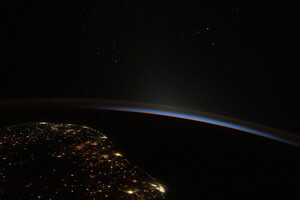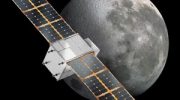William Shatner admitted that the flight felt like “the funeral of the Earth.”

William Shatner, Star Trek star admitted that his flight into space was not full of joy, rather it resembled the “funeral of the Earth”. In an excerpt from his new book, the actor admitted that he expected the trip to be cathartic, but in fact he was “full of overwhelming sadness,” reports Science Alert.
“Everything I thought was wrong. Everything I expected to see was wrong. The contrast between the vicious cold of space and the warm care of the Earth below filled me with overwhelming sadness. Every day we are faced with the knowledge of the further destruction of the Earth by our hands: the extinction of species of animals, flora and fauna… that which took five billion years to develop, we will suddenly never see due to the intervention of mankind. It filled me with horror. My journey into space was supposed to be a celebration, but instead it was like a funeral,” Shatner writes in an excerpt published by Variety.
Shatner's words spread across the network. They are an illustration of what is called the “review effect”. This is the effect that flight into space has on a person and the view of the Earth as a single, integral and fragile system. And Shatner is not the first to feel it.
In his book “Orbital Perspective”, NASA astronaut Ron Haran wrote that he also felt sadness during the arc trip to the International Space Station.
< p>“As I neared the top of this arc, time seemed to stand still and I was overwhelmed with emotion and realization. But when I looked down at Earth – this stunning, fragile oasis, this island that has been gifted to us and that has protected all life from the harshness of space – I was overcome with sadness, and I was hit under the breath, with an undeniable sobering,” Haran wrote.
Edgar Mitchell, the sixth man to walk on the moon, also felt similar feelings during his first time in space. “From there, from the moon, international politics looks so petty. You want to grab a politician by the scruff of the neck, drag him a quarter of a million miles and say, 'Look at this, son of a ***,'” he said.
In an interview with The Irish Times in 2020, former astronaut Chris Hadfield also told Roisin Ingle that his 4,000 hours in space had given him unprecedented insight into the planet and “the eternity of time”. “Currently, the main threat is not asteroids or solar flares. It's us,” Hadfield said.
The term “review effect” was first used by writer Frank White in 1987. It describes not only the perspectives that open up to astronauts, but also the desire that arises in them to take better care of our planet.
The flip side of the “viewing effect” is that along with sadness comes hope: the realization that we are all one and that the planet is incredibly resilient, having survived solar flares, asteroid impacts, and even the massive impact that created the moon.
Related video
In 2018, a survey of 39 astronauts found that their perception of Earth changed after traveling to space.




